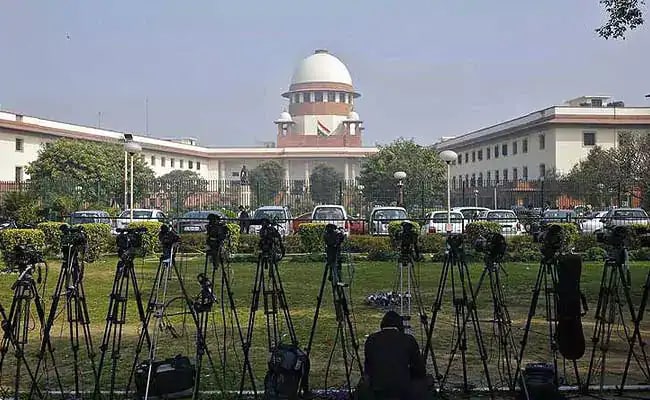[ad_1]
New Delhi: The Supreme Court will hear a petition to start contempt proceedings against activist Harsh Mander on Friday morning, after Delhi Police filed an affidavit on Wednesday over a December 2019 speech at Delhi’s Jamia Millia Islamia, in which he allegedly made derogatory remarks about the top court.
In their affidavit the cops claimed that Mr Mander’s speech not only incited violence but was seriously contemptuous, as it made derogatory remarks against the top court before a huge gathering of people.
The affidavit was filed on Wednesday in response to a top court order after Solicitor General Tushar Mehta, appearing for the government while hearing a clutch of petitions on the Delhi violence, raised the issue of Mr Mander’s speech at an anti-citizenship law meet.
In its order the top court had also asked for a full transcript of the speech in question. However, it is unclear if the Delhi Police petition included that detail.
Earlier on Wednesday, Chief Justice SA Bobde, in whose courtroom the matter will be heard, had told Mr Mander, who has also approached the Delhi High Court seeking action against BJP leaders over hate speeches ahead of last month’s Assembly election, that “we will not hear you now… if this is what Harsh Mander feels about the Supreme Court, then we will have to decide that first”.
The video in question shows Mr Mander speaking to Jamia students on December 16, a day after a peaceful anti-citizenship law march was hijacked and ended in clashes with cops.
In it he can be heard saying: “This is a fight for the soul of our Constitution… This battle can’t be won in the Supreme Court, because we have seen that over some time, in the cases of NRC, Kashmir and Ayodhya, it did not protect humanity, equality and secularism”.
Mr Mander goes on to say: “We will try (to fight) there (the Supreme Court) as well because it is our… but the matter cannot be resolved in parliament or Supreme Court”.
There have been allegations hate speech had a role to play in the violence that engulfed parts of Delhi last week, in which over 50 people were killed and hundreds were injured.
Meanwhile, as instructed by the Supreme Court, the Delhi High Court will begin hearing petitions related to that violence, including those of hate speech, on Friday. Turning down the centre’s plea for more time, the top court frowned on the repeated “unjustified” adjournment of the matter.
[ad_2]